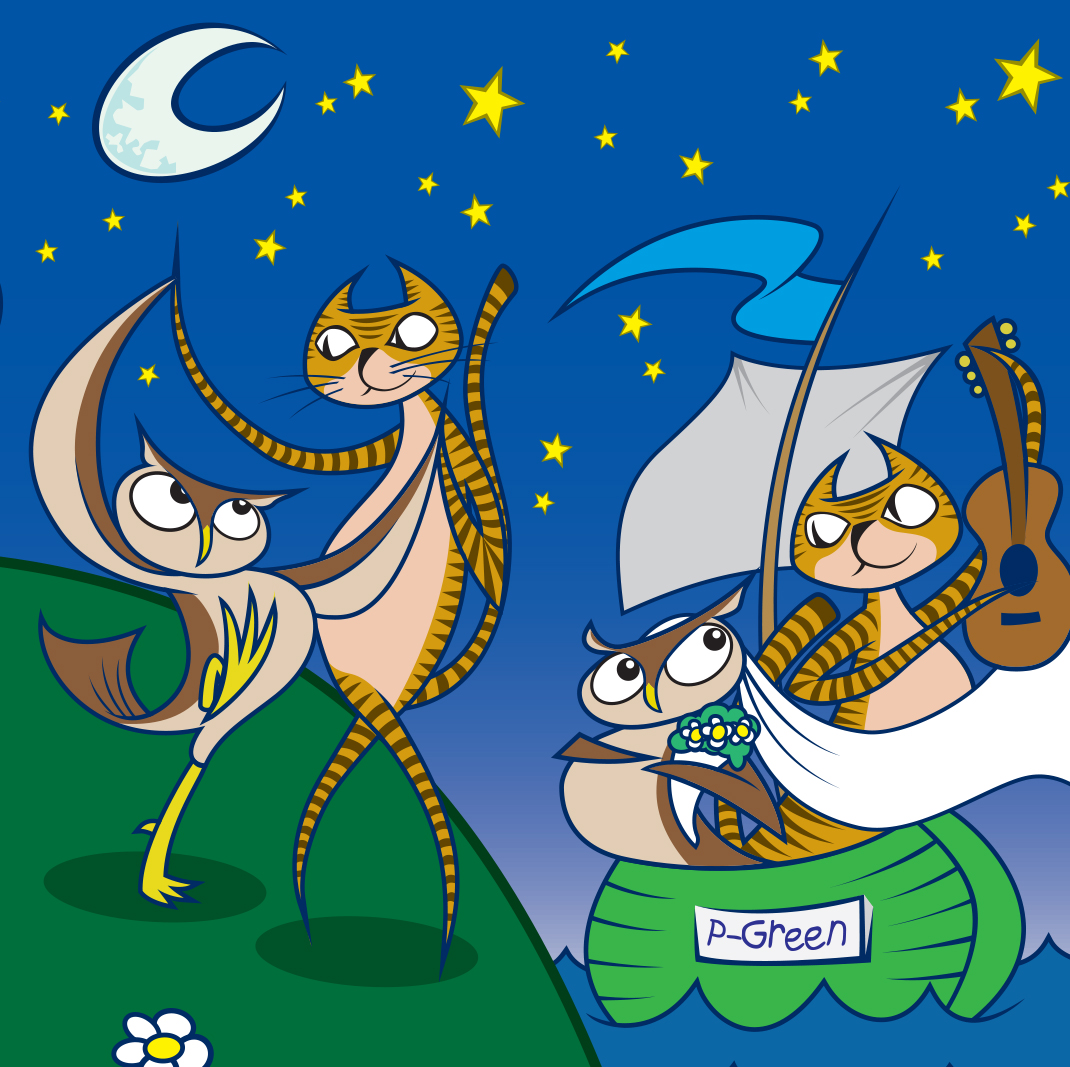Are you the owl or the pussycat? Either is fine — having both in your organization is ideal — but being aware of the importance of balanced roles in any business is critical.
By Alec Pendleton, Big Ideas for Small Companies, powered by The MPI Group
Balanced Roles: Peter McArthur, a business writer of long ago, wrote in 1904 that “every successful enterprise requires three men — a dreamer, a businessman, and a son-of-a-bitch.” I’d whittle that down to two — an owl and a pussycat. (I take that pairing from a wonderful Barbra Streisand/George Segal movie from 1970, The Owl and The Pussycat, in which two radically different personalities are thrown together and have to figure out a way to co-exist.)
And so it is. You may be good at a lot of things, but you’re not good at everything. Many engineers are lousy at sales. Many salespeople are hopelessly impractical. Many visionaries are lousy managers. Etc. Because leading a company requires a broad range of skills, and because those needs change over time, every enterprise needs a touch of contradiction.
A young woman I very much admire is in the process of taking over her father’s company. The business is high-precision machining, and the father’s technical skills are extraordinary; he knows all there is to know about the manufacturing operation. He’s not very strong in sales, so the company wasn’t growing much, but he sure could make stuff. Not so the daughter. She could sell sawdust to a lumbermill, but her knowledge of machining pales beside her father’s. Since she joined the business, between the two of them, they’ve got the spectrum of needs well-covered. He’s the owl, she’s the pussycat. She’s generated growth, and he’s gotten the stuff made.
But now he’s ready to retire, so the daughter is faced with the question of how to replace him. Just imagine if she hired another pussycat: sales could grow to the sky! But just imagine the company without an owl: cost overruns, missed deliveries, quality problems. Those sales would stop growing pretty quickly, and absent the owl’s skills, disaster would ensue. So her primary challenge in the transition is to recognize the need for both styles, and hire to her weakness, not her strength. (She’s doing that, by the way, and the company is prospering; she’ll be fine.)
In my own case, I’m much more of a pussycat than an owl: I’m apt to try something crazy without thinking enough about the practicalities of it. Fortunately, I’ve been working with a terrific owl, a young fellow who joined me some years ago with the shared objective that he would grow into my job, and someday take over the company. In harness, we’ve made great progress. When he arrived, as Controller, the company was in deep trouble (due in no small part to my unbalanced pussycat leadership), and together, we’ve turned it around and set it on a good path. The idea was that he would be my protégé, and over the years, as part of our plan, he has gradually taken over more and more functions — maintenance, then tooling, then sales, then manufacturing — to the point that he is now President, and running the company (much more owlishly than I was). I seldom even go there anymore, and we’re working on a plan to transfer ownership to him.
But there’s a big challenge ahead of us: how do we maintain the balance that has served us so well?
The culture of my friend’s company was very much focused on manufacturing, with sales almost as an afterthought. She has rebalanced the culture of the company, and her challenge has been to do that without diminishing the importance of manufacturing. In my case, my pussycat leadership had a profound effect on the company, but it also caused a lot of problems, which weren’t solved until my protégé arrived. So now the question is, who will replace me as pussycat? In both cases, the balance is important. Whoever is in charge — owl or pussycat — determines the culture of the whole operation, and replacing one with the other demands careful attention to maintaining that balance. Just as my friend needs not just to hire an owl, she needs to be sure that owl is heard; so, when my owlish protégé brings in a replacement pussycat, he needs to be careful not to suppress that voice in the newly owlish culture he’s creating.
So which are you, owl or pussycat? Either is fine — having both is important — but you just need to be aware as you replace yourself that you don’t either eliminate or suppress the other voice. Peter McArthur’s dreamer, businessman, and son-of-a-bitch — or my owl and pussycat — all need to be there, and all need to be heard.
© 2017 powered by The MPI Group

